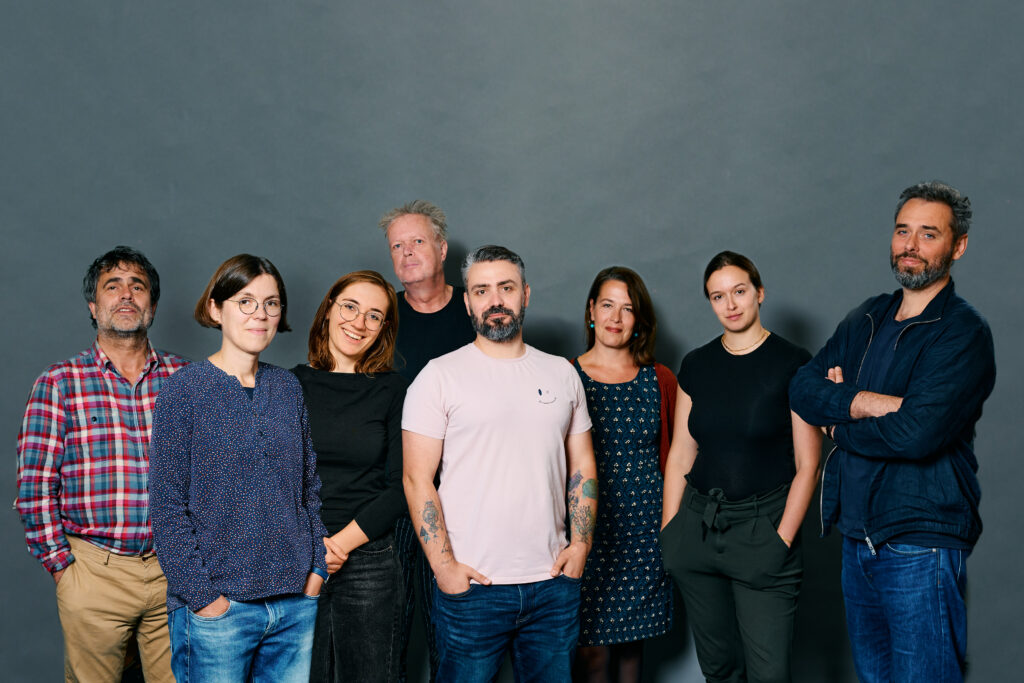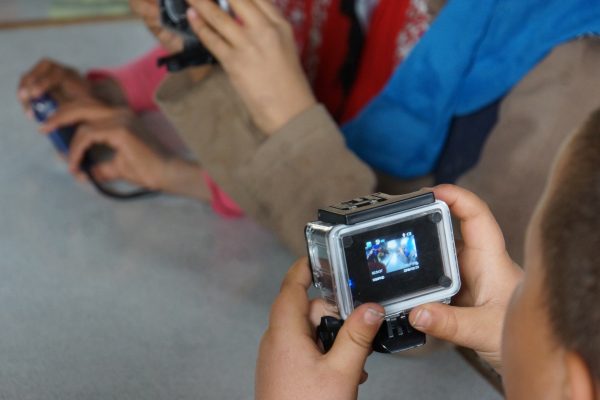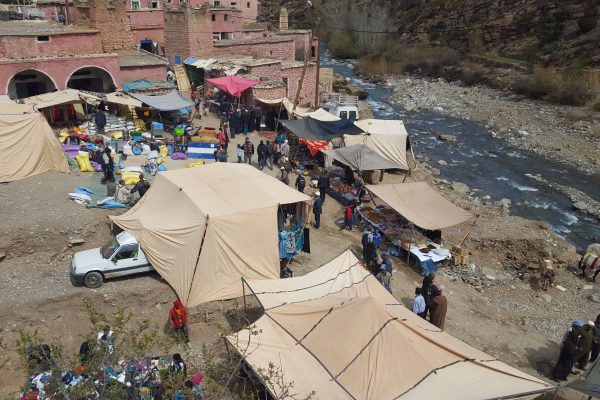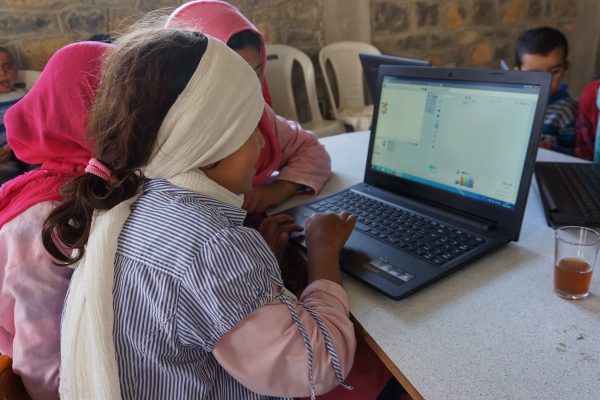B04 - Digital Publics and Social Transformation in the Maghreb
Research focus of the 2nd phase (2020 – 2023)

Photo: Nathan Dreessen
Principal Investigators:
Researchers:
Associated:
This subproject focuses on the use, meaning, and impact of (digital) media practices in Morocco and among the Moroccan diaspora in Europe. It particularly analyzes the emergence, fragmentation, and reconfiguration of publics and current public spheres and forms of cooperation in transformation processes. The subproject explores the conditions of civic cooperation in situations of both stability and upheaval and, at the same time, aims to make a theoretical and practical contribution to the differentiation of the concepts of ‚publics‘ and ‚public sphere‘ as well as to deliberations of modernization in the history of media.
Our project combines the disciplines of socio-informatics and cultural anthropology. This interdisciplinary connection provides an ethnographically exploration of the use, impact, and meaning of (digital) media within local settings and broader socio-cultural contexts. This facilitates a locally sensitive examining and joint creation of new media practices, that offer options for action, to provoke consensus and dissent and to mobilize publics in this process, to investigate them in situ and to design, implement and evaluate socio-technical (infra-)structures based on empirical research.
In order to deal with these topics, the subproject uses a participatory approach and collaborative design and action research in addition to extensive (media) ethnographic field research. Together with local actors in the High Atlas and the Rif in Morocco, as well as in Dortmund in Germany, Media Spaces were established and, in accordance with the computer club concept, a situated training of media competencies was jointly produced on site and in transnational cooperation.
The broader research perspective also focuses on the use and production of new media and data practices under different conditions in an intra-Moroccan and intercontinental comparison. Cooperative forms of fragmented (digital) public spheres are also considered transnationally in migration networks of the Moroccan diaspora to Germany and The Netherlands. For this purpose, the cooperative connection with a Computer Club in Dortmund is an important component of the research. The comparative research and design of appropriation practices and cooperative media use considers the increasing differentiation of public spheres in the Euro-Mediterranean zone. This also includes consideration of the historical embedding of publics, especially in a context of colonial and postcolonial ramifications.
All activities are united by an active examination of the conditions of their accessibility - starting with questions of manual and digital skills, through social practices of cooperation in kinship, neighborhood and transnational networks, to social structures of political participation on site and in the different state structures between Morocco and Europe. The use of haptic, visual and creative methods provides access to epistemic practices and social spaces and goes beyond the conventional word and writing centered forms of academic communication. This aligns with recent endeavors of decolonizing the collection, representation, dissemination, and authorship of empirical data, and of thus rethinking the relationship between researchers and their local research partners.
Publications
Featured
The book looks at experiences from IT design projects in Europe, Africa and North America and addresses the question: how can IT design be implemented sustainably? The authors develop a set of sensitizing concepts that can form a basis for a continuous consideration of sustainability as a factor in IT design and its innovative implementation.
Simone, Carla; Wagner, Ina; Müller, Claudia; Weibert, Anne; Wulf, Volker, eds. 2022. Future-proofing. Making Practice-Based IT Design Sustainable, Oxford, United Kingdom: Oxford University Press. DOI: 10.1093/oso/9780198862505.001.0001
The book is an exploration of the theoretical, conceptual and methodological foundations of human-centred design. Specifically, it critically examines the notion of 'practice' and argues for an understanding of the concept which emanates from engagement with design problems rather than simply from social scientific theory. The contributors to the book in their various ways all subscribe to a systematic account of how practice-oriented studies can inform design.
Wulf, V., Pipek, V., Randall, D., Rhode, M., Schmidt, K., & Stevens, G., eds. 2018. Socio-Informatics: A Practice-based Perspective on the Design and Use of IT Artifacts. Oxford, United Kingdom: Oxford University Press.







